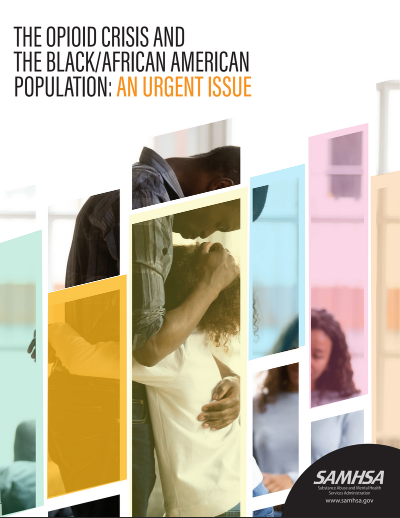NBCI Opioids Program
The National Black Church Initiative highlights the Opioid Crisis
Additional Papers and Reports on the Opioid Crisis and African Americans
Responding to the Opioid Crisis
Despite national attention, the opioid crisis doesn't show signs of letting up. In fact, an average of 100 Americans die each day from opioid overdoses.But there is hope.
NBCI recognizes that the opioid crisis requires a rapid and comprehensive response. We clearly understand that this crisis does not only affect the individual but also the entire family, their community, and first responders. This is why we are taking a proactive stance to authorize 15,000 of our Churches in organizing their ministries to assist several state, local and county officials in the areas of, but not limited to: emergency shelters, housing, food, clothing, peer to peer counseling, and volunteers. We have learned from the crack epidemic in the '80s that the Church needs a more proactive strategy to combat and contain this emerging crisis. This is why, over the past month, we have reached out to major inner-faith leaders across regions and denominations to form a faith-based task force to assist the National Commission on Opioid Abuse, Governors, Mayors, and local health officials.
It is the proper role of the Church to be able to respond in this manner and to bring some healing to those communities in crisis.
Rev. Anthony Evans, President of the National Black Church Initiative, says, “For the past 8 months we have been working with a number of states—Florida, Virginia, Minnesota, and New York—offering them a comprehensive science based, data driven, clinical approach to help slow the crisis down so that we can approach this as a nation and as a community in a logical, substantive response. The Church urges all states to work very closely with all faith communities. Today I am happy to report that over 7,000 African American Churches have opioid ministries in the states listed above.
We will increase the Church participation at 50% over the next 6 months, bringing our total to over 15,000 Churches out of our 34,000 Church network engaged in helping states, governors and communities deal with this growing and unabated crisis.”
The Opioid Crisis and the Black/African American Population: An Urgent Issue
U.S. Department of Health and Human ServicesSubstance Abuse and Mental Health Services Administration
Office of Behavioral Health Equity
This issue brief includes information compiled from a variety of sources, including interviews with key informants, federal data, and the peer-reviewed research and policy literature. Key informants were selected for their expertise and current work to reduce opioid misuse and provide treatment and other services in Black/African American communities.
They represented a range of roles—including community leader, person with lived experience, peer recovery coach, peer recovery supervisor, executive director and staff of community-based programs, evaluator, researcher, addiction psychiatrist, clinical psychologist, physician, social worker, nurse, and city representative.
The information they shared represents a snapshot of what is happening in selected Black/African American communities struggling with opioid misuse and is not a full comprehensive picture of this population across the country. Their direct statements, indicated by italics and quotation marks, are interspersed throughout the document.
Follow this link to read the entire report!
CNN Exclusive: The more opioids doctors prescribe, the more money they make

Click image to see larger.
Black History Month profile: Dr. Melissa M. Freeman
Dr Melissa Freeman is a Bronx-born medical doctor who finished medical school in 1955, and has practiced medicine since 1961. Her grandfather, Albert B. Walker, was born a slave in the 1850s. She attended Howard University College of Medicine.She is one of the first doctors to treat women with opioid addiction.





